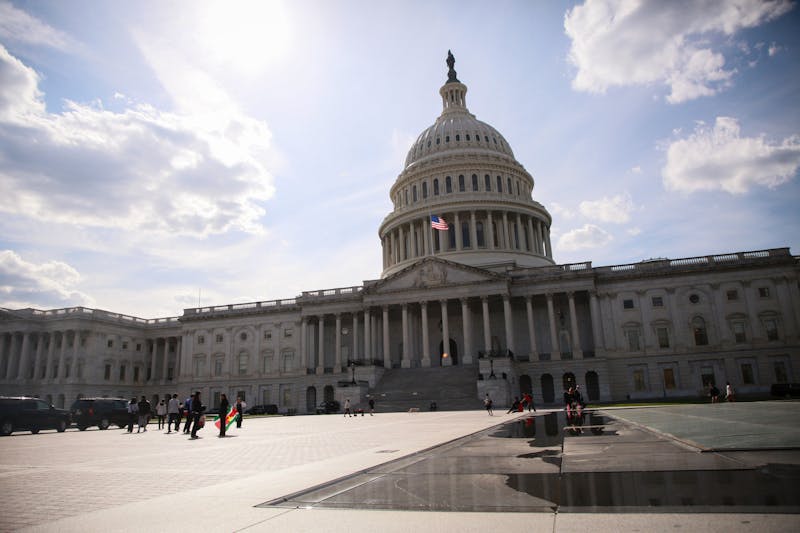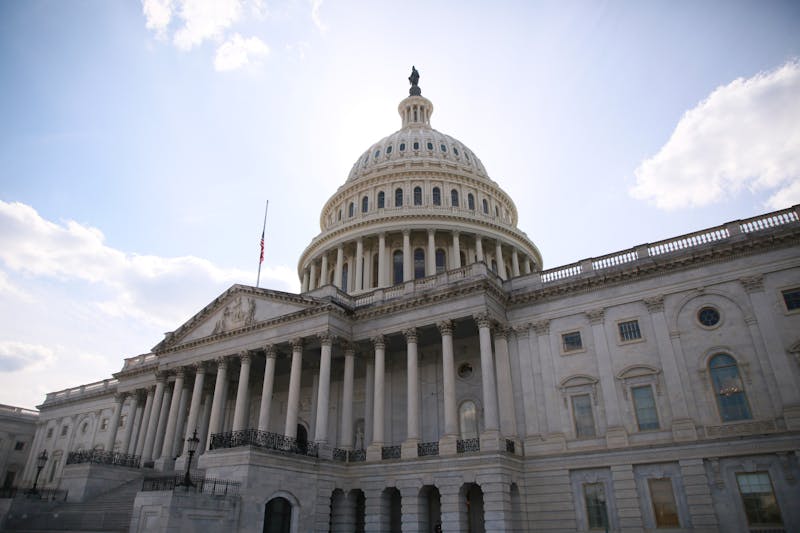
The Penn Faculty Senate affirmed their support for academic freedom in their Jan. 30 resolution.
Credit: Abhiram JuvvadiThe Penn Faculty Senate expressed support for academic freedom, faculty governance, and open expression in a statement on behalf of University faculty.
The resolution — which was endorsed on Jan. 24 and obtained by The Daily Pennsylvanian — was signed by the Faculty Senate Executive Committee, which wrote that it recognizes that the University has “a commitment to teaching, learning, and research.” The Executive Committee is comprised of more than 50 faculty members from Penn’s undergraduate and professional schools.
Representatives from the University and the Faculty Senate did not respond to a request to comment by time of publication. According to a member of the Executive Committee present for the vote, the resolution was passed unanimously by those present, and with high turnout.
“As faculty we regularly engage with our intellectual opponents, even adversaries. We listen to them,” the statement read. “We understand that open and respectful exchange of ideas and perspectives is essential to the pursuit of learning, knowledge, and truth among all members of our university community.”
The resolution acknowledged that members of the University community may have "differing perspectives, ” but emphasized the need for “dialogue across differences.”
“Our university champions the fierce independence of academic inquiry and freedom of expression among faculty, students, and other members of the scholarly community,” the statement continued. “It is through the courageous defense of these values that our university drives inquiry, cultivates knowledge, shares learning, and contributes to the common good.”
In the resolution, the Faculty Senate Executive Committee listed several affirmations, including “that academic freedom remains a bedrock principle” of the University and the right to open expression for members of the University under the Open Expression Guidelines — but also acknowledging the limits of open expression.
The resolution emphasized the commitment to shared governance through the “central role of faculty” and the importance of having an academic environment that is free of both threats and harassment.
“[We] affirm that open expression is not limitless, and that speech must not become a weapon used to harass,” the statement added. “[We] embrace free inquiry and the mission of the University, and resolve to continue efforts to combat prejudice, discrimination, and intolerance.”
The resolution was first endorsed by a subcommittee of the Faculty Senate Executive Committee on Jan. 12 before being revised and endorsed by the Faculty Senate Executive Committee on Jan. 24.
Multiple constituencies across the University have raised concern in recent weeks about the state of academic freedom and open expression on campus.
In October 2023, the Faculty Senate Tri-Chairs — composed of professors Tulia Falleti, Eric Feldman, and Vivian Gadsden, who serve as the chair, chair-elect, and past chair, respectively — expressed their support for academic freedom.
“Let us be clear: academic freedom is an essential component of a world-class university and is not a commodity that can be bought or sold by those who seek to use their pocketbooks to shape our mission,” the statement from the Tri-Chairs read.
On Jan. 22, more than 100 people rallied in support of academic freedom, and in December 2023, more than 1,200 faculty members accused influential alumni and donors of interfering with the University's academic policies in an open letter to the University Board of Trustees.
The Daily Pennsylvanian is an independent, student-run newspaper. Please consider making a donation to support the coverage that shapes the University. Your generosity ensures a future of strong journalism at Penn.
Donate












